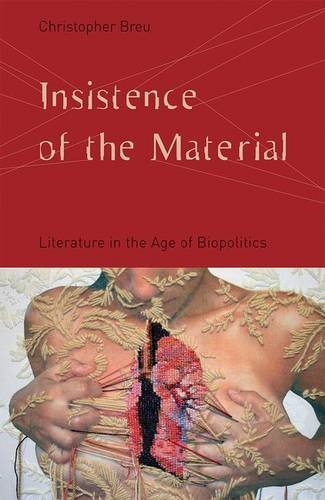

Most ebook files are in PDF format, so you can easily read them using various software such as Foxit Reader or directly on the Google Chrome browser.
Some ebook files are released by publishers in other formats such as .awz, .mobi, .epub, .fb2, etc. You may need to install specific software to read these formats on mobile/PC, such as Calibre.
Please read the tutorial at this link: https://ebookbell.com/faq
We offer FREE conversion to the popular formats you request; however, this may take some time. Therefore, right after payment, please email us, and we will try to provide the service as quickly as possible.
For some exceptional file formats or broken links (if any), please refrain from opening any disputes. Instead, email us first, and we will try to assist within a maximum of 6 hours.
EbookBell Team

4.3
8 reviews
Insistence of the Material engages with recent theories of materiality and biopolitics to provide a radical reinterpretation of experimental fiction in the second half of the twentieth century. In contrast to readings that emphasize the metafictional qualities of these works, Christopher Breu examines this literature’s focus on the material conditions of everyday life, from the body to built environments, and from ecosystems to economic production.
In Insistence of the Material, Breu rethinks contemporary understandings of biopolitics, affirming the importance of forms of materiality that refuse full socialization and resist symbolic manipulation. Breu considers a range of novels that reflect questions of materiality in a biopolitical era, including William Burroughs’s Naked Lunch, Thomas Pynchon’s V., J. G. Ballard’s Crash, Dodie Bellamy’s The Letters of Mina Harker, and Leslie Marmon Silko’s Almanac of the Dead. Drawing from accounts of the emergence of immaterial production and biopolitics by Michel Foucault, Giorgio Agamben, Roberto Esposito, and Michael Hardt and Antonio Negri, Breu reveals the confrontational dimensions of materiality itself in a world devoted to the idea of its easy malleability and transcendence.
Taking his analysis beyond the boundaries of literature, Breu argues that both materiality and subjectivity form sites of resistance to biopolitical control and that new developments in materialist theory advance a conception of social existence in which materiality—rather than language or culture—is the central term.